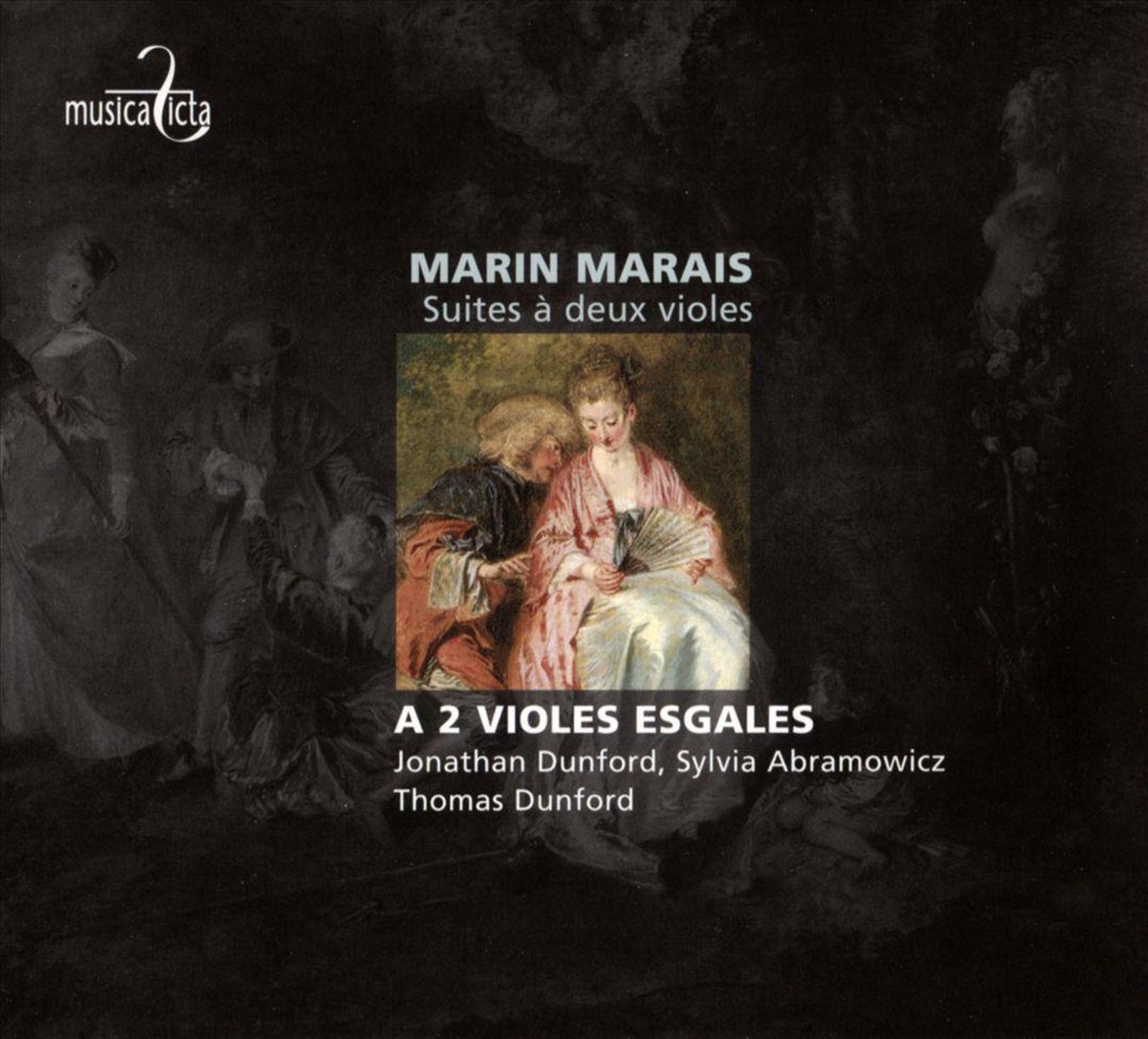Of all the French court composers Marin Marais is unparalleled. He illumined the court of the most powerful king in seventeenth century Europe and has remained for three centuries as a monument, a source of elegant musical pleasure to musicians and music lovers alike.
In 1689 Marais published a premier in France: a “basso continuo” part for this first book. This is revolutionary work. Marais goes even further in his praise of the theorbo in his second book of Pièces de Viole (1701) mentioning the theorbo as being an instrument apt for performing the solo viol part.
Sylvia Abramowicz’s bass viol is one of the rare 17th century French viols to have survived the hundreds of years separating us from Marais’ Paris.
As for the strings, A 2 Violes Esgales used particular ones reconstructed and made of a specific kind of brass, as Marais played upon. These strings give a mellower sound than their modern counterparts and also help underline the intricate and beautiful ornaments so prevalent in Marais’ music.
In a similar vein A 2 Violes Esgales have chosen to play at a=409hz which is closer to what Marais and Lully’s orchestra. This also gives the music a different color and texture.
Jonathan Dunford and Sylvia Abramowicz arrived in October 1984 to study with Jordi Savall in Basel. They decided to get together to read these suites by Marais. They present to you the result of thirty years of our work in the company of their son Thomas.

